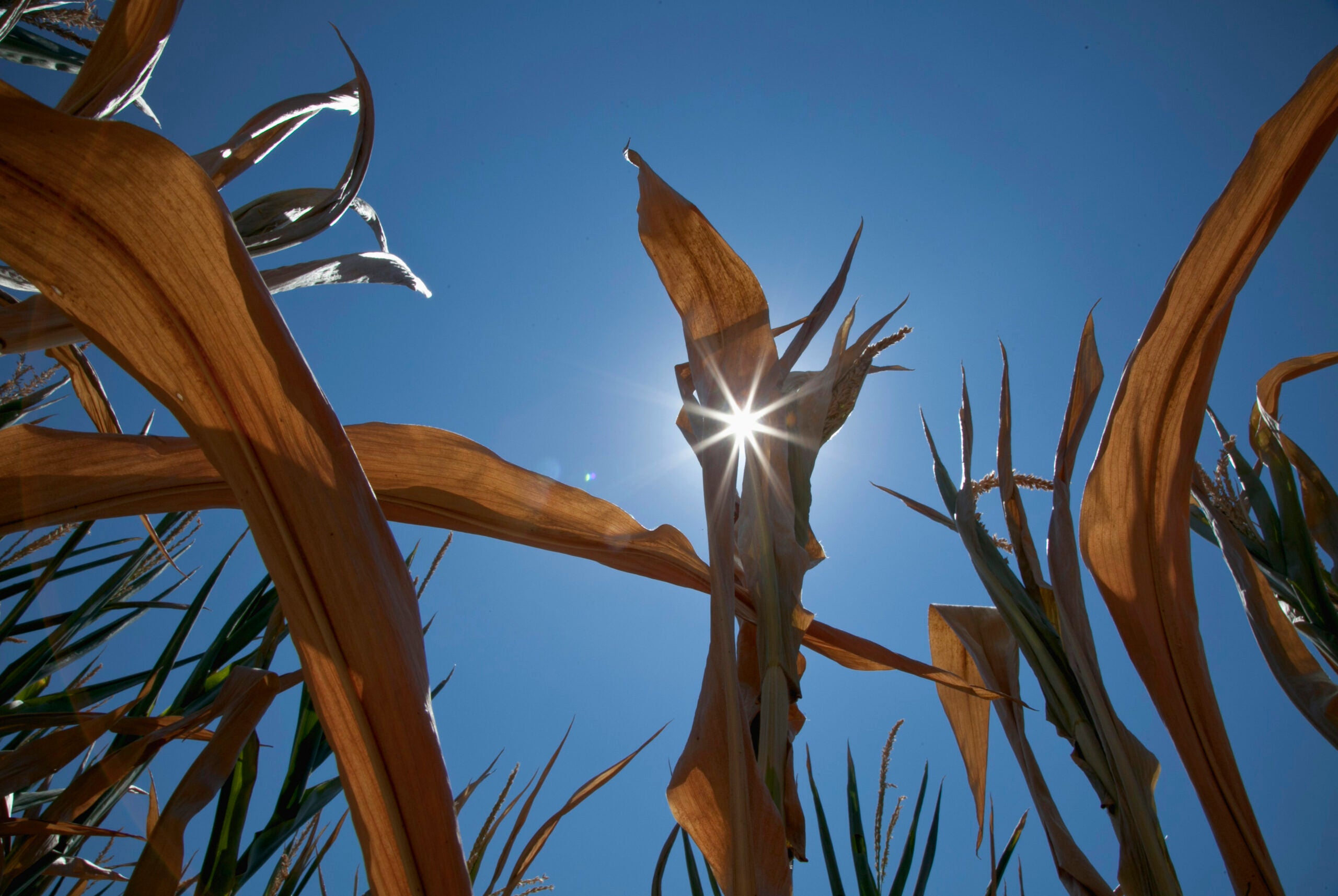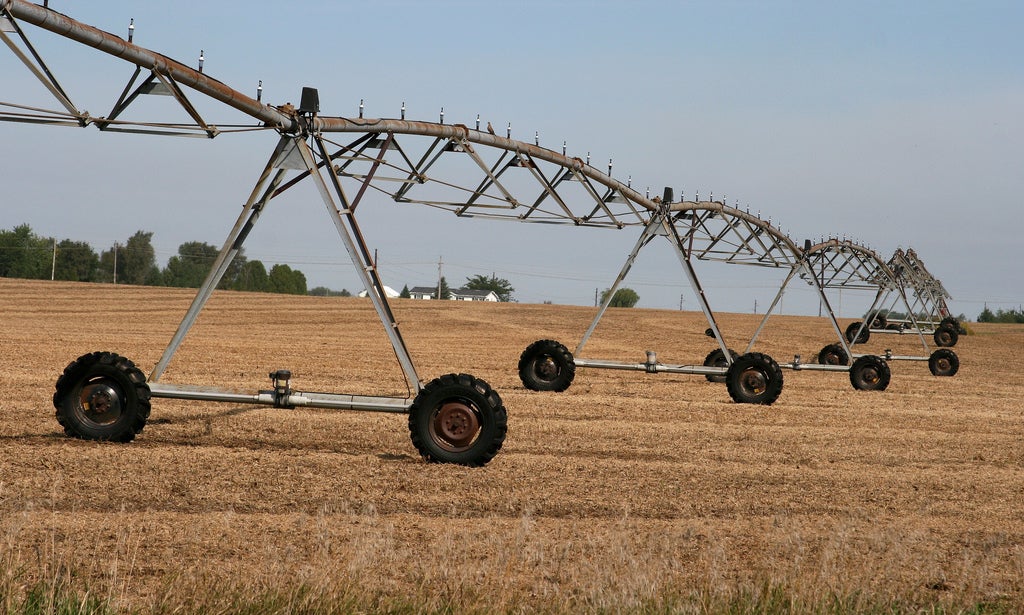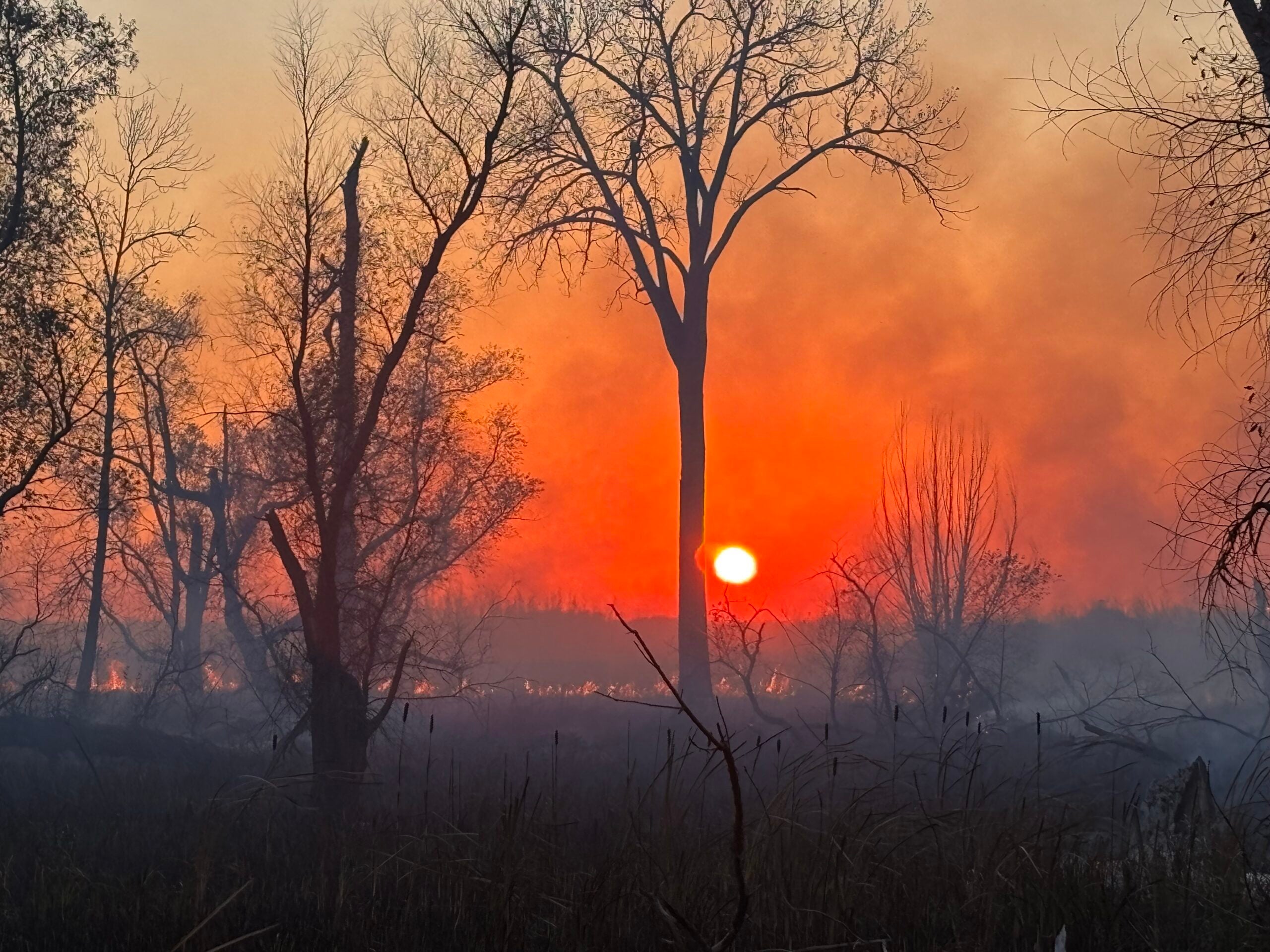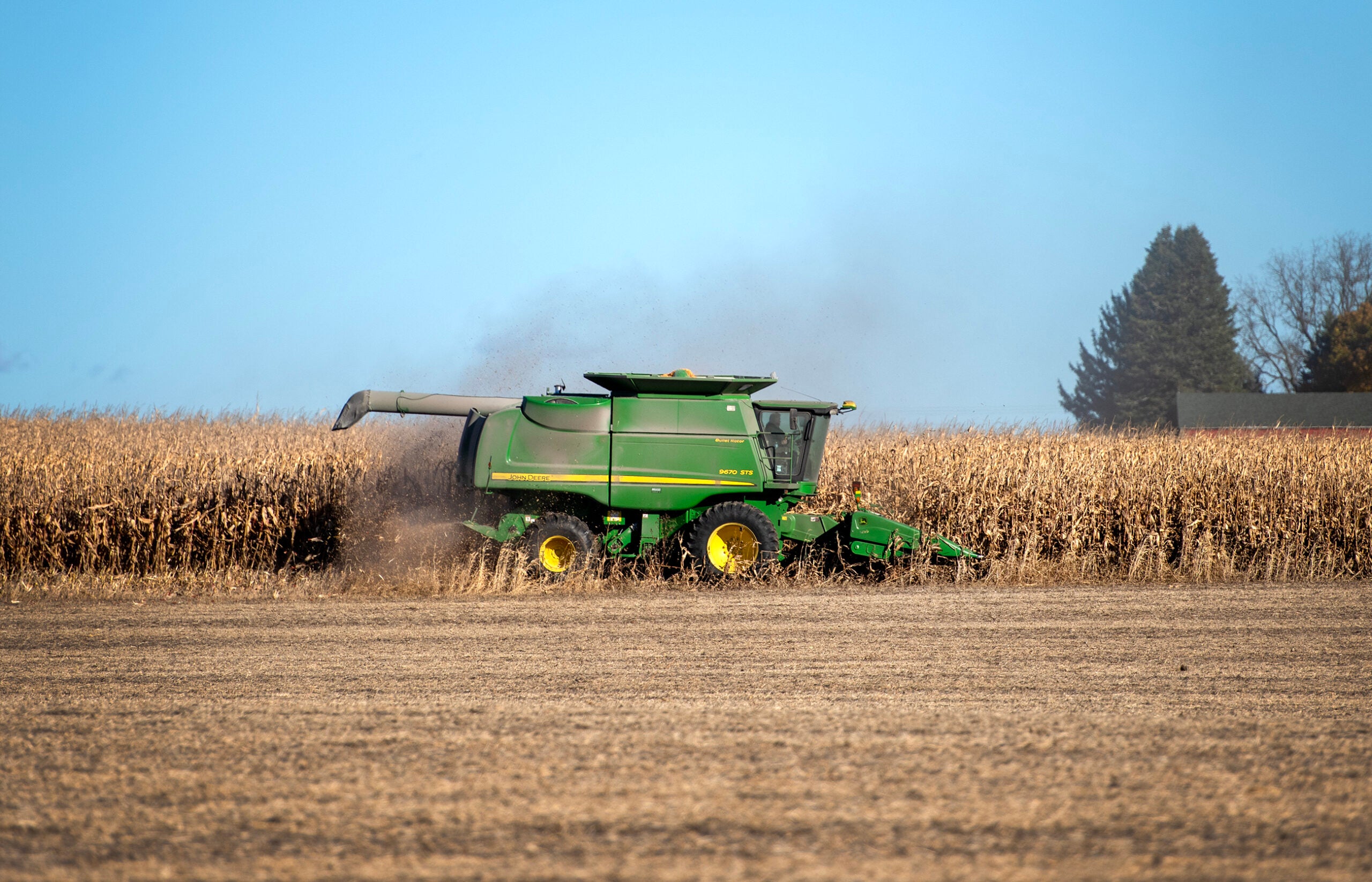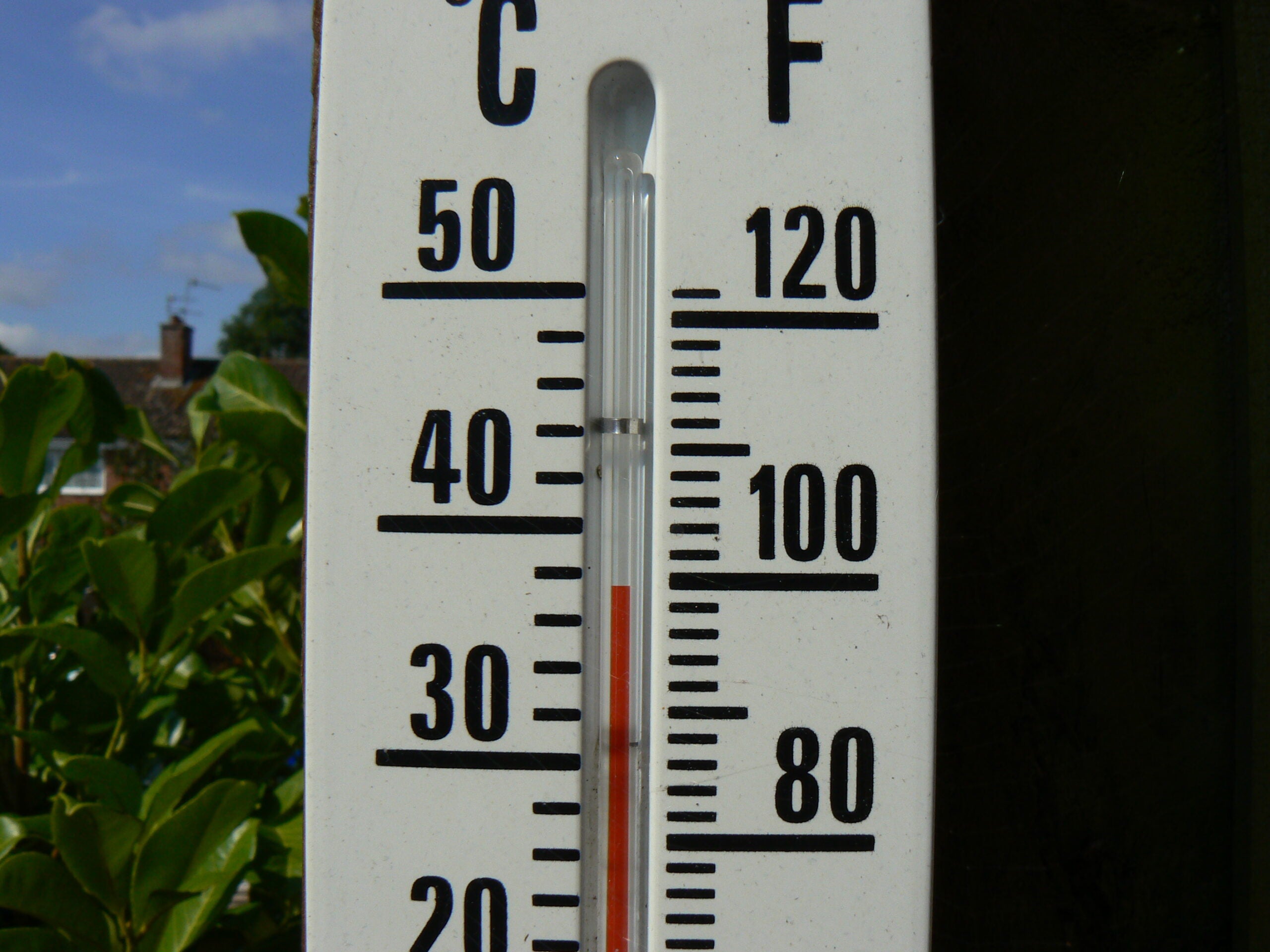Drought conditions in Wisconsin are slowing down crop growth, but a local expert says there is still time to turn the season around.
The U.S. Department of Agriculture issued a disaster declaration for 18 southern Wisconsin counties because of drought conditions that started on July 4. The main counties identified were Columbia, Dane, Iowa, Jefferson and Sauk counties, with the surrounding counties also eligible under the declaration.
Much of the southern half of the state is currently under extreme or severe drought conditions, according to the U.S. Drought Monitor’s latest data from Tuesday. Areas in northwestern Wisconsin are also under severe drought.
Stay informed on the latest news
Sign up for WPR’s email newsletter.
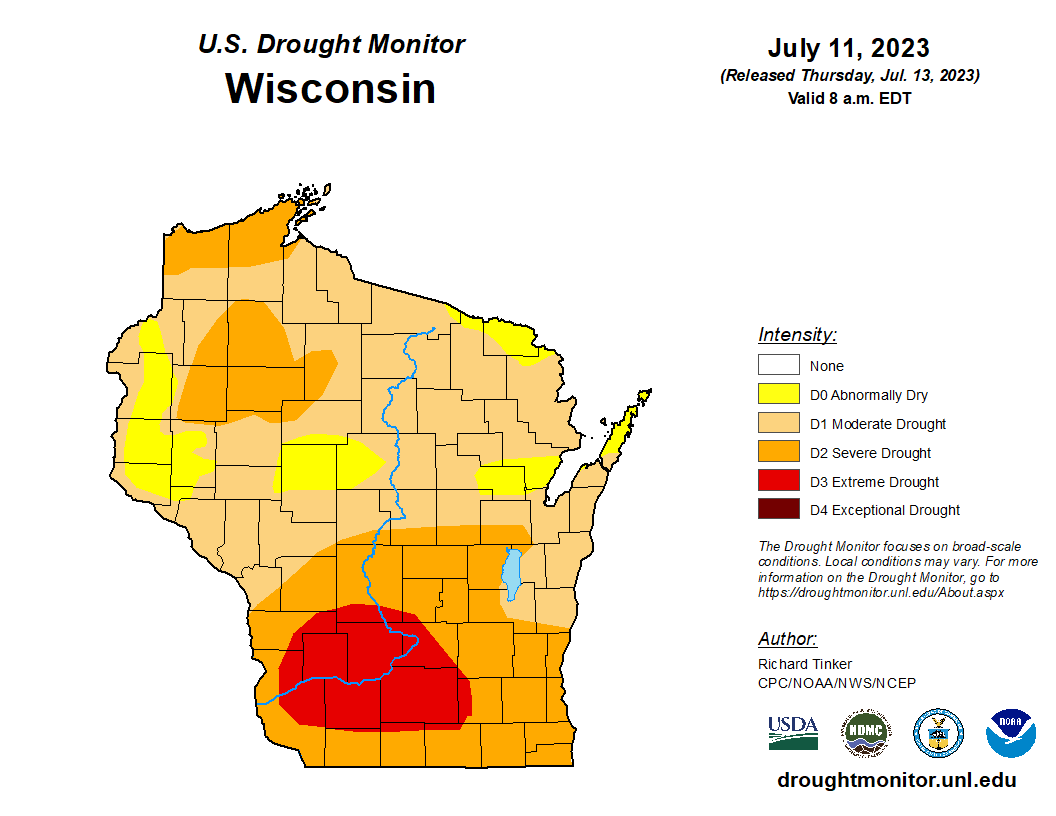
Josh Kamps is a crops and soils educator for the University of Wisconsin-Madison’s Division of Extension in the southwestern region. He said crop conditions vary greatly across his area, even from farm to farm.
Kamps said producers who were able to plant early in the season got enough rain to get crops started, allowing the plants to grow deeper roots that tapped into water farther below the surface as soils dried out.
“We have areas where crops were planted a little bit later, maybe toward the end of May,” he said. “Those crops are really struggling. These last couple of rain showers this week are going to definitely help.”
While the state had ideal soil moisture in March and early April, Kamps said conditions started to change dramatically later in spring and early summer.
“When we needed some of those recharging rains in the second half of May and the first part of June, we just were not receiving them,” he said.
Kamps said the late-planted crops are mostly those owned by dairy farms and other livestock producers, who harvested a winter cover crop to use for feed. Planting late is usually not a problem, since Wisconsin often receives late-spring rains, but he said those producers could pay for the gamble this year.
“Those farmers did receive some really good, high-quality forage off of those acres,” Kamps said. “Hopefully, we’ll receive a few more good rain showers and we’ll be able to get a good crop of silage.”
Wisconsin state climatologist Steve Vavrus called this year’s phenomenon a “flash drought”, where drought conditions come on suddenly. Vavrus told WPR’s “The Morning Show” that Wisconsin had record precipitation from January through April, before going through the third-driest May and June on record.
“We had so much snow in the winter and spring rains and now suddenly into the dry spells,” Vavrus said. “Farmers have a lot of experience in handling weather variability and the types of crops these days, these hybrid crops with the newer genetics are much more able to handle drought than even 10 years ago … but this is definitely a challenging year.”
Vavrus said the Wisconsin Drought Task Force was recently activated for the first time since 2012. The task force brings together representatives from different state agencies to advise the governor’s office on how to respond to the drought, considering whether to relax environmental restrictions or other regulations during an emergency situation.
Kamps said it’s too early to know whether a farm will see a decline in crop yields this season and may need to tap into disaster loans. He said rain in July and August will be crucial as corn and soybeans reach the pollinating and reproduction stage, when the plants need a larger amount of moisture to develop.
“It’s continuing to grow but also starting to switch to, for the corn plant, to develop the ear where the grain is going to form and for the soybean plant, to develop that flower and where the bean pod is going to grow,” Kamps said.
He said if plants are dry during this phase, they won’t have a chance to rebound later in the season.
Due to the emergency declaration, farms will be able to apply for emergency loans through the Farm Service Agency. Agricultural cooperatives and other farm-related businesses affected by the drought will have access to assistance through the U.S. Small Business Administration.
Wisconsin Public Radio, © Copyright 2025, Board of Regents of the University of Wisconsin System and Wisconsin Educational Communications Board.
